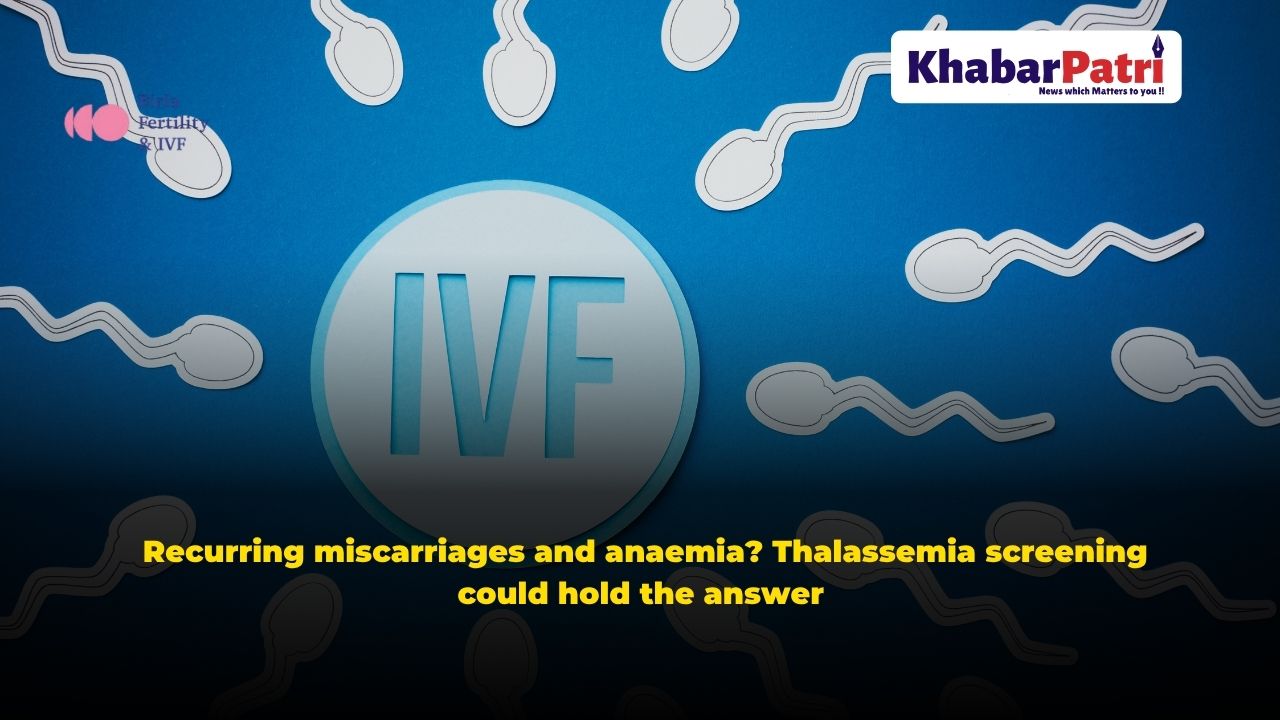To be accredited to Dr Aashita Jain, Fertility Specialist, Birla Fertility & IVF, Surat
After Meera suffered her third miscarriage in two years, the cause remained a mystery. She had no chronic illnesses, adhered to her doctor’s recommendations, and her scans appeared normal. One persistent challenge throughout her pregnancies was severe anemia that did not improve with supplements. It was only after undergoing a thalassemia screening that the true issue was identified: she was a beta-thalassemia carrier—a condition she had never encountered before.
This situation applies to numerous women throughout South and Southeast Asia, where the likelihood of thalassemia is elevated. In India alone, it is estimated that there are between 30 to 40 million carriers of beta-thalassemia.
Understanding thalassemia: Thalassemia is a hereditary condition that impacts the production of hemoglobin. When hemoglobin levels are low, the body has difficulty transporting oxygen, which results in chronic anemia. Common symptoms encompass fatigue, weakness, shortness of breath, and dizziness. Because the symptoms can be subtle, many women may not know they are carriers until they encounter complications during pregnancy.
If both partners are carriers, there is a 25% chance with each pregnancy that the child may inherit a severe condition such as beta-thalassemia major.
The Connection to Fertility : Women diagnosed with thalassemia, particularly those facing severe anemia, may encounter challenges such as recurrent miscarriages, preterm labor, or intrauterine growth restriction (IUGR). In severe instances, the fetus might develop anemia while in the womb, which can lead to heart failure or hydrops fetalis—an alarming condition that poses a significant risk of miscarriage or stillbirth.
The Significance of Thalassemia Screening: Early detection empowers couples to make informed decisions. For expectant mothers, a timely diagnosis enables healthcare providers to monitor and manage the pregnancy more effectively. The screening process typically starts with a Complete Blood Count (CBC) to detect red blood cell irregularities, followed by tests to identify abnormal hemoglobin. Genetic testing can further confirm carrier status.
If both partners are carriers, prenatal tests such as CVS or amniocentesis can determine if the fetus has the condition.
Recommended Actions
Couples should consider screening if:
• They have had multiple miscarriages or persistent anaemia
• They belong to high-risk ethnic groups
• They have a family history of thalassaemia or blood disorders
• They are planning pregnancy
Thalassemia may be silent, but its impact on pregnancy isn’t. A simple test can prevent complex problems later.

